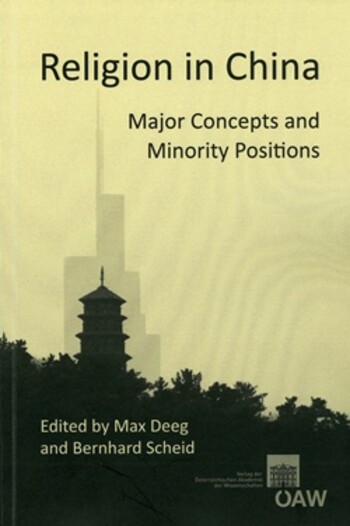
Max Deeg, Bernhard Scheid (ed.), 2015
Religion in China: Major Concepts and Minority Positions. (BKGA 85.) Wien: VÖAW, 2015 (order online). (240 + xiii S.)
Topic
Religions of foreign origin have shaped Chinese cultural history much stronger than generally assumed and continue to have impact on Chinese society in varying regional degrees. The essays collected in the present volume put a special emphasis on these “foreign” and less familiar aspects of Chinese religion. Apart from an introductory article on Daoism (the prototypical autochthonous religion of China), the volume reflects China’s encounter with religions of the so-called Western Regions, starting from the adoption of Indian Buddhism to early settlements of religious minorities from the Near East (Islam, Christianity, and Judaism) and the early modern debates between Confucians and Christian missionaries. Contemporary religious minorities, their specific social problems, and their regional diversities are discussed in the cases of Abrahamitic traditions in China. The volume therefore contributes to our understanding of most recent and potentially violent religio-political phenomena such as, for instance, Islamist movements in the People’s Republic of China.
Table of contents
- Max Deeg, Religion in China: Introduction (1–12)
- Chiao Wei, Daoism in China (13–28)
- Max Deeg, Writing Times and Spaces Together: Experiments to Create an Early Sino-Buddhist Historiography (29–49)
- Zhuo Xinping, Religious Policy and the Concept of Religion in China (51–64)
- Irene Eber, Chinese Jews and Jews in China: Kaifeng – Shanghai (65–89)
- Erik Zürcher, Sin and Penance in Fujian Christianity in Late Ming Times (91–112)
- Roman Malek, S.V.D., Christendom and its Manifestations in China Today (113–141)
- Wang Jianping, Unity in Diversity: The Islamic Revival Movement in China Today (143–186)
- Dru C. Gladney, Islam in China: Accommodation or Separation? (187–228)